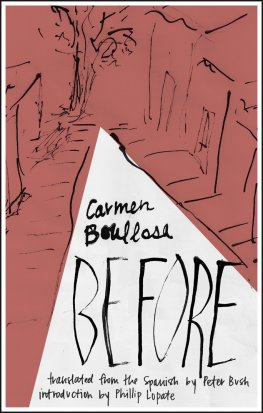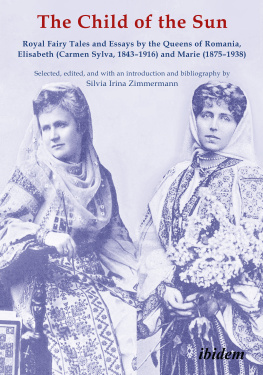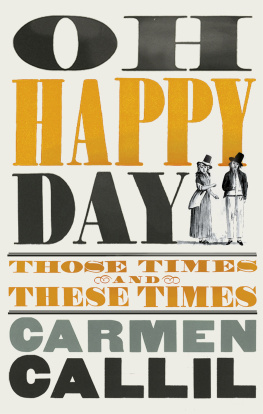FROM MEMORYS SHRINE
[Image not available:Portrait of Carmen Sylva with signature.]
FROM
MEMORYS SHRINE
THE REMINISCENCES OF
CARMEN SYLVA
(H. M. QUEEN ELISABETH OF ROUMANIA)
Translated from the German, by Her Majestys desire,
by her former Secretary
EDITH HOPKIRK
WITH ILLUSTRATIONS
[image of colophon not available]
PHILADELPHIA & LONDON
J. B. LIPPINCOTT COMPANY
1911
Copyright, 1911, by J. B. Lippincott Company
Published March, 1911
PRINTED BY J. B. LIPPINCOTT COMPANY
AT THE WASHINGTON SQUARE PRESS
PHILADELPHIA, U. S. A.
INTRODUCTION
It has been said by a well-known German novelist of our day in one of his most recent works that as we approach our fiftieth year our hearts nearly always resemble a grave-yard, thronged with memories, a far greater share of our affection belonging by that time to those who are already at rest beneath the earth than may be claimed by those still left here to wander with us on its surface. This remark of Roseggers is above all true of such of us as have been accustomed from our earliest youth to stand mourning beside new-made graves, and see our nearest and dearest prematurely carried off in Deaths relentless grasp.
It is in this cemetery of mine, sacred to the memory of all whom I have loved and lost, that I would linger this day, holding commune as is my wont with my beloved dead; but for once I would not that my pilgrimage were altogether a solitary one. As in thought I stand before each grave in turn, gazing with the spirits eyes on the dear form so clearly recognisable under the flowers I have strewn above it, I would fain retrace for others than myself every line of the features I know so well, that all you to whom I speak may learn to know and love them also. Even the best are all too soon forgotten in this busy, restless world, but it may be that my words, coming from the depths of my heart, will strike a responsive chord in the hearts of those who read them, and kindling in their breasts a feeling like my own, will keep alive for a little space these figures I call back from the shadowy Past. My aim will be achieved if I can but convey to other souls something of the impression my own received from the noble and beautiful lives with whom I have come in contact, and which my pen will now strive with the utmost fidelity to portray.
I am about, then, to throw open the sanctuary I have so long jealously guarded from the worldthe private chapel within whose niches my Penates are enshrined. Those to whom I pay a constant tribute of love and gratitude were either the idols of my early youth or the friends of riper years. I shall try to show them as they appeared to me on earth, in every varying aspect, according to season and circumstance, and to the changes of my own mood and habits of thought during the different stages of my mental development. To my youthful enthusiasm many of them became types of perfection, in whom I could discern no human weaknessto have known them was my pride and happiness. All that was best in myself I attributed to their influence, and their presence has never ceased to dwell with me since they have been removed to higher spheres. They, on whose lips I hung with such rapt attention, drinking in every word that fell from them, very possibly paid but small heed to the silent, earnest-eyed child, nor guessed how fondly those lessons of wisdom and holiness were being treasured up in that little heart. For to none of us is it ever given to know the precise hour in which our own soul has spoken most clearly and forcibly to another soul, nor to fathom the full import of the message with which we are entrusted towards our brethren. We cast our bread upon the waters of life, not knowing its destination, and the seed we scatter with a lavish hand is borne in all directions by the winds to take root it may be in the soil we should have deemed least fit for culture. Children often observe more keenly and reflect more thoughtfully than their elders would give them credit for. We need but look back each of us to our own childhood, in order rightly to understand how deep and lasting are the impressions then received, and how they may colour the whole after-current of our lives. Now, as I recall those days, I feel myself, as it were, suddenly transported into the midst of an enchanted garden, among whose rare and luxuriant blossoms I would fain gather together the fairest specimens for a garland. But they spring up around me in such wild profusion, and their beauty is so radiant, their colours so rich, their fragrance so intense, that I am embarrassed in my choice, and only stretch out my hand timidly and hesitatingly towards them, fearing lest in plucking I should injure the least of these fairest works of Creation. Well, indeed, may I feel diffident as to my own skill in selecting and grouping them aright.
Yet, though the skill be lacking, goodwill and sincerity I may at least claim to bring with me in full measure to my labour of love. It is no mixture of Fact and Fiction I would here compile, nothing but the simple, unadorned Truth, things I have myself seen and heard. Not that I would have these pages resemble memoirs, in the ordinary sense of the word, for what are memoirs at the best but a superior sort of gossipwhen they are not, that is to say, simply gossip of a despicable kind! No mysteries will be here unveiled, no scandalous secrets dragged to light. I do but propose to draw back the curtain from before the picture-gallery within whose sacred precincts I have until now allowed no other footsteps than my own to stray, so that all who will may render homage with me to the moral and intellectual value of the lives these portraits strive to commemorate.
CHAPTER I
CLARA SCHUMANN
It is but fitting and natural that I should open with this revered name the series of my reminiscences, as my childish recollections hardly go further back than the date of the first time I heard her, when I was only eight years old, at my very first concert in Bonn. That was so great an event in my life, and I was so impatient for the evening to come, that I hardly know how I got through the whole day that preceded it. Seldom has any day since appeared so interminably long. Still, the evening did come at last, and I remember accompanying my mother to the concert-room, into which she was wheeled in her invalid-chair, for, although still quite young, she had been for many years in ill-health and unable to walk. But whether I walked by her side, or how I got there, I no longer know, for I have only a sort of confused recollection of having been brought there without any effort on my own part, as though I had been borne thither on wings! My first concert! My heart still beats loud when I think of it.
It was a big, crowded room we entered. But I did not see the people. I paid no attention to anybody. I saw nothing but the estrade on which the piano was placed. Our seats were so far to the right that, small as I was, I should not have seen the pianist at all had I not obtained my mothers permission to establish my diminutive person in the passage left between the two rows of seats, where I had a full view of the keyboard. I was all eyes, all ears, quivering from head to foot with intense nervous expectation. At last Madame Schumann came in, and, advancing swiftly to the instrument, sat down before it. She was dressed in black velvet, with a single deep-red rose stuck low behind one ear in her dark hair, which was very thick and inclined to curl, and which she wore plainly parted and flat to the head, instead of having it according to the fashion of those days twisted to stand out on each side of the face. What struck me at once was something harmonious in her whole appearance; it always seemed to me afterwards as if her dress must have been crimson too, to match the rose in her hair. Her hands were small, firm and plump, the touch full, healthy and vigorous, almost of virile strength. I carried the rich, clear tones away with me, to ring in my ears for long afterwards. But that which went straight to my heart, and haunted me longer still, was the pathetic look in her eyes.









